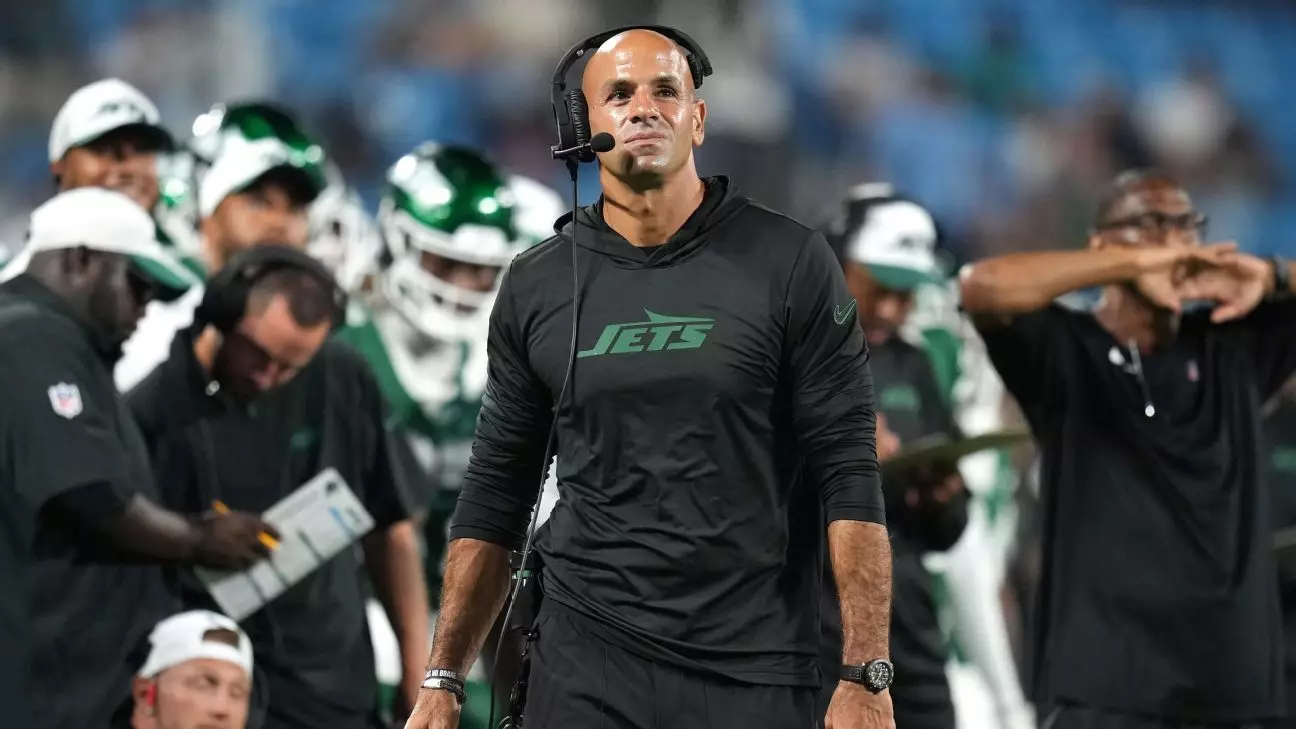In a move that has sent shockwaves through New York sports, the Jets have dismissed head coach Robert Saleh after a lackluster start to the 2024 season. With a disappointing 2-3 record, owner Woody Johnson made the decision to remove Saleh, stating that it was not taken lightly. Johnson emphasized the team’s failure to meet expectations and expressed a desire for change. This pivotal moment marks a significant turning point for the franchise, highlighting the often tumultuous nature of NFL coaching decisions, particularly within the landscape of a fiercely competitive league.
The announcement of Saleh’s firing comes with Johnson’s decision to promote defensive coordinator Jeff Ulbrich to interim head coach. Johnson praised Ulbrich’s tough coaching style and strong rapport with the team, hinting at a more aggressive approach to extracting the potential of the squad. This change underscores the urgency that accompanies underwhelming performances in the NFL, where the gap between success and failure can often be razor-thin.
Saleh’s tenure as head coach began in 2021, and while he had moments of promise, his overall record of 20-36 reflects deeper issues within the organization. The Jets have been characterized by a persistent instability at the quarterback position, which has severely hampered their offensive growth throughout Saleh’s reign. Over four seasons, the Jets cycled through an alarming six different quarterbacks, including the initial promise of second overall draft pick Zach Wilson and the highly anticipated return of Aaron Rodgers.
Despite having a seasoned veteran quarterback like Rodgers on the roster, the Jets have continued to struggle offensively. The high hopes for the 2024 season, which heavily relied on Rodgers’ recovery from an Achilles injury, did not translate into consistent performances on the field. This lack of offensive production not only creates dissatisfaction among fans and stakeholders but also raises questions about the systemic issues within the coaching staff and the development of players.
Saleh’s Relationship with Team Leadership
One particularly notable aspect of Saleh’s time with the Jets has been his relationship with quarterbacks, particularly in the case of Aaron Rodgers. Just days before his firing, Saleh expressed optimism about the team’s potential turnaround, asserting that no one within the organization felt panic. However, rumors about discontent within this critical relationship persisted, adding to the scrutiny surrounding Saleh’s leadership.
Rodgers himself recently defended the connection, insisting that any narrative about friction between him and Saleh was misrepresented by outside influences. Their camaraderie was positioned as a cornerstone for future success, yet the pressures of winning in the NFL can quickly evolve relationships that seem stable. The complexities of such dynamics are pivotal, especially when the stakes are as high as playoff aspirations.
Historical Context and Learning from Mistakes
In the annals of Jets history, Saleh’s firing during the season highlights a trend among franchises exhibiting low tolerance for disappointing results. The decision by Woody Johnson to execute such a drastic move reflects a broader narrative in professional sports, where instant gratification and immediate results can lead to swift leadership changes. The Jets are not alone in this; historical precedents exist across the league where teams have initiated mid-season changes, often aiming to spark a late-season revival.
However, the recurring theme of coaching instability raises questions about the long-term vision of the organization. Frequent leadership changes hinder the development of a coherent team identity, ultimately stalling progress. Effective coaching demands time, patience, and support, elements that seem to be tested when the pressures of winning overshadow foundational stability.
With Jeff Ulbrich stepping in as interim head coach, the Jets face a critical juncture in their season. The coaching staff and players must reevaluate their approach as they strive to harness the talent available to them. Success hinges on maintaining focus amidst the tumult, especially as they grapple with their internal shortcomings and external criticisms.
The immediate future for the Jets hinges on their ability to regroup and recalibrate after Saleh’s departure. The hope remains that the change in leadership will clear a path to a revitalized offensive strategy and an enhanced team dynamic. The NFL, characterized by its unpredictability, offers a new opportunity for the Jets to prove that they can turn things around under new leadership. Time will tell if this change will result in the desired revival for both the team and its long-suffering fan base.


Leave a Reply